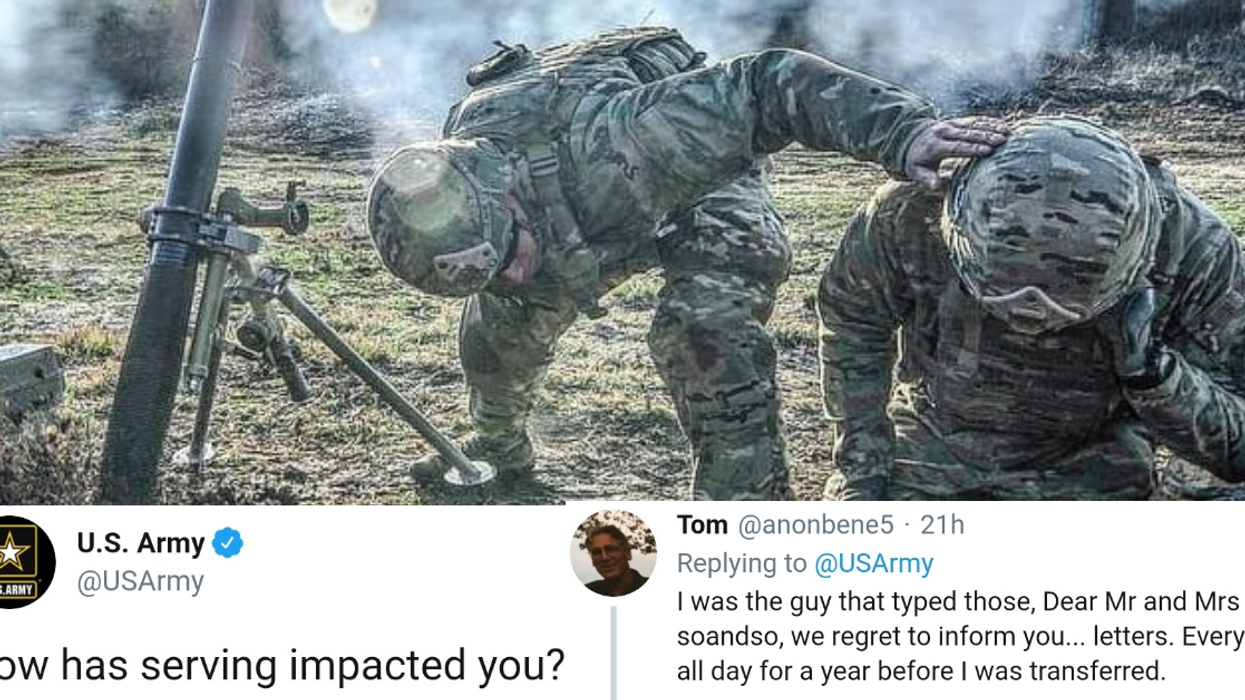On Memorial Day, we remember the ultimate sacrifice by members of our armed forces to preserve the freedoms and liberties of our country.
And remembering their sacrifice carries with it a responsibility to understand its long-reaching impacts and not to candy-coat the truth in the name of patriotism.
*Content warning: mentions of violence, death, trauma, suicide and sexual assault*
The U. S. Army posted to Twitter asking veterans what impact their time in the military had on their lives.
"How has serving impacted you?"
The intention was likely good, meaning to honor those who served, but a bulk of the responses were probably not what the Army had in mind.
Many responses talked about the toll on the mental and physical health of those who serve, even when they do make it back home.
The trauma and sacrifice wasn't always related to combat.
Agent Orange has had a horrible impact on many lives too.
Many who made it home still couldn't reconcile civilian life with their time in service, and their loved ones lost them anyway.
Many people who read through the thread were horrified by what they read.
Several were thankful for the people speaking out, as the suffering experiences by those who serve is often only talked about in hushed voices in private spaces.
The Army acknowledged the torrent of negative responses to their tweet, and urged anyone currently in crisis to reach out.
Several people pointed out that a phone number is not enough, and doesn't absolve the armed forces of responsibility to care for those who served.
As well as their duty to defend and honor the service of their LGBTQ servicemembers, regardless of the religious beliefs of any members of the executive branch.
While the current system is wholly insufficient, crisis lines like the National Suicide Prevention Lifeline listed in the U. S. Army's tweet are there to help anyone in crisis.
If a phone call isn't going to be helpful, the Lifeline also has an online chat option at https://suicidepreventionlifeline.org/chat/.








 vasosecret/TikTok
vasosecret/TikTok
 dontlookatmedoll156/TikTok
dontlookatmedoll156/TikTok alyssa.b345/TikTok
alyssa.b345/TikTok EllieBelly/TikTok
EllieBelly/TikTok Shelby Daniel/TikTok
Shelby Daniel/TikTok J/TikTok
J/TikTok indigo1009/TikTok
indigo1009/TikTok Kam/TikTok
Kam/TikTok





 @starduster14021/X
@starduster14021/X r/TheMajorityReport/Reddit
r/TheMajorityReport/Reddit r/TheMajorityReport/Reddit
r/TheMajorityReport/Reddit r/TheMajorityReport/Reddit
r/TheMajorityReport/Reddit r/TheMajorityReport/Reddit
r/TheMajorityReport/Reddit r/TheMajorityReport/Reddit
r/TheMajorityReport/Reddit r/TheMajorityReport/Reddit
r/TheMajorityReport/Reddit @sciencexspirit/Bluesky
@sciencexspirit/Bluesky


 90s popcorn GIF
90s popcorn GIF  signing season 3 GIF
signing season 3 GIF  home alone pepsi GIF
home alone pepsi GIF  Machine Production GIF by Finder Relais Nederland
Machine Production GIF by Finder Relais Nederland  No No No GIF
No No No GIF